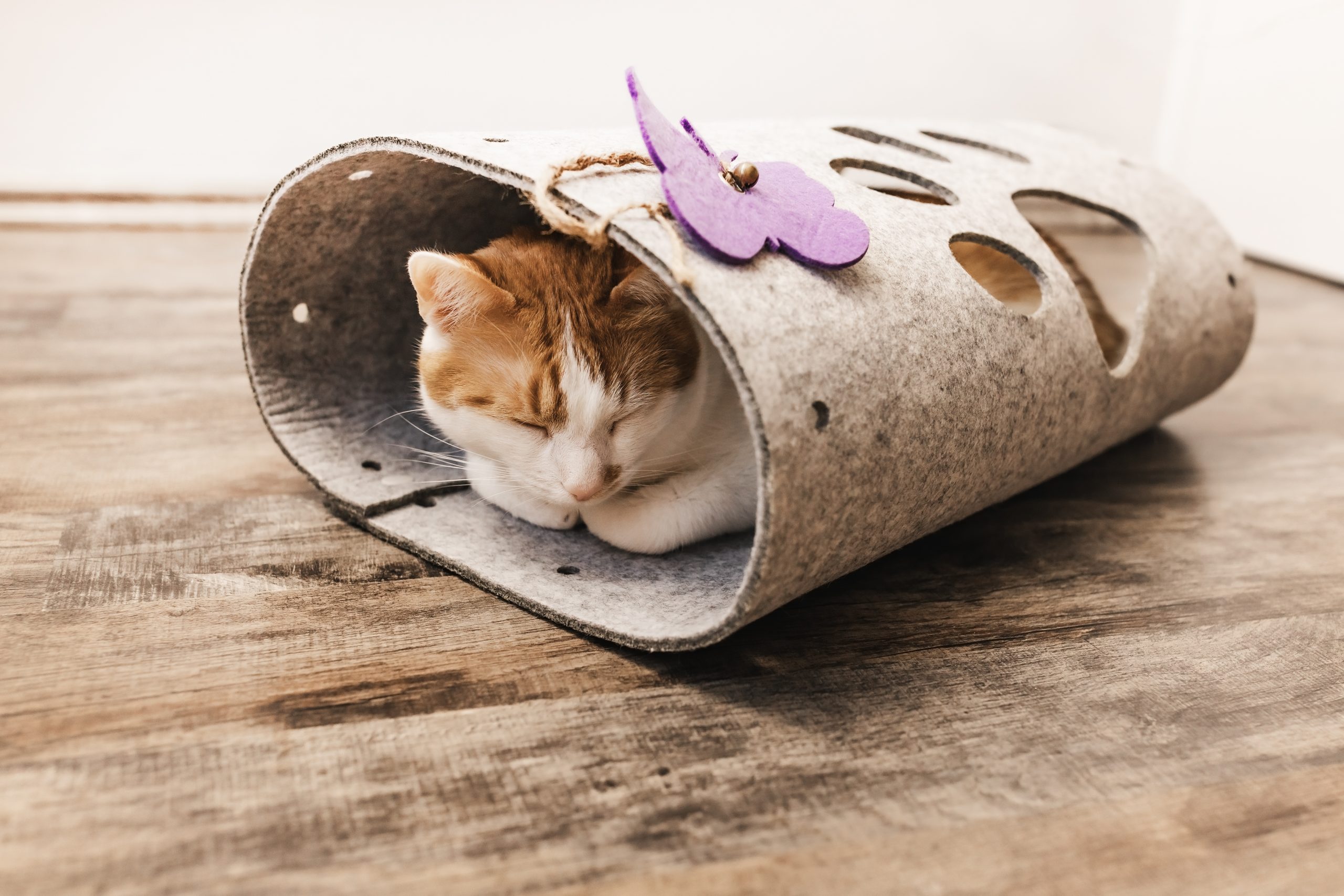As our pets age, their needs change in subtle and not-so-subtle ways. We often notice they’re slower to rise in the morning or that they hesitate before hopping onto the couch. These little changes are part of growing older, but they also highlight why senior pets require a different approach to veterinary care.
That is to say, what worked for them at five years old might no longer be ideal now that they’re twelve. Most importantly, keeping them comfortable becomes just as essential as keeping them healthy. This is where Mobile Veterinary care can truly make a difference.
Reducing Stress From Transportation and Waiting Rooms
Senior pets are more sensitive to stress, and travel can be a big trigger. A car ride that was once an exciting adventure might now feel disorienting or painful. Therefore, taking a senior dog or cat into a clinic can sometimes feel like more trouble than it’s worth.
In addition, waiting rooms bring unfamiliar smells, loud noises, and other animals that may provoke anxiety. On the other hand, when we use a Mobile Veterinary service, the pet stays in their familiar space. This lowers stress, which in turn makes it easier for the veterinarian to assess their health accurately.
We’ve seen time and again how much calmer older pets are when they’re examined in their own bed or by the window where they like to nap. In other words, we meet them where they feel safest.
More Comfortable Exams and Treatments at Home
Older pets often have mobility issues like arthritis, joint stiffness, or muscle loss. Carrying them outside, lifting them into vehicles, and walking through parking lots can be painful for them. Therefore, we need to think beyond convenience and consider comfort as a top priority.
With mobile care, they can stay where they already feel cozy and relaxed. This means there’s no need to move them unnecessarily. For example, a physical exam can be done while your dog lies on their favourite rug or your cat sits curled up in her blanket.
Furthermore, treatments like vaccinations, blood pressure checks, and even fluid administration can be done during a home visit. This allows the veterinarian to observe how your pet moves and behaves in a natural setting, which provides better insights into their condition. Above all, it keeps them from being handled too much when their joints are sore or their energy is low.
Personalized Visits That Take Time and Pay Attention
In a typical clinic, appointments are often brief and move quickly. That model doesn’t always work for senior pets. They need time to settle. They need patience. And we, as pet owners, need time to ask our questions without feeling rushed.
Mobile care allows for that breathing room. The vet isn’t looking at the clock, trying to clear the room for the next patient. Instead, they are focused on just your pet. Consequently, you can get deeper answers, better discussions, and care that’s fully tailored.
For instance, if your senior dog has been pacing at night or your cat has stopped grooming, there’s time to explore these behaviours thoroughly. Likewise, you can talk about medications, diet, supplements, and environmental changes in one calm conversation. You’ll never feel like you’re being shuffled out the door.
Supporting Chronic Conditions in Familiar Spaces
Many senior pets live with chronic health conditions. Arthritis, kidney disease, diabetes, and heart issues are common as pets age. Managing these conditions takes consistency and careful observation. It also takes a gentle hand, especially when medications and monitoring are involved.
If you’re caring for an aging pet and think they’d benefit from quieter, more personalized visits, we’re here to support that journey. To explore options for in-home care, reach out and book a visit that works around your pet’s comfort and your routine.
This approach makes it easier to keep up with health routines. It also gives the vet a chance to see how the pet is truly doing day-to-day. For example, noticing how your pet uses stairs, drinks water, or interacts with their space can give valuable clues that might be missed in a clinical setting.
Easier End-of-Life Decisions and Comfort
One of the hardest aspects of having a senior pet is facing their final chapter. We all wish they could live forever. Still, there comes a time when we must make decisions about comfort, dignity, and letting go. These moments are already emotional and difficult. Therefore, how they unfold matters greatly.
When you have access to in-home care, saying goodbye can be a quieter, more loving experience. Your pet doesn’t have to spend their last moments in a sterile exam room under fluorescent lights. Instead, they can be on their bed, in your arms, with the smells and sounds they’ve always known.
Likewise, palliative care and pain management can begin earlier and more gently at home. That includes helping families recognize when quality of life is declining. With mobile veterinary support, you can have compassionate guidance through those decisions with clarity and kindness.
Preventive Care Still Matters in the Golden Years
While many people assume senior pets just need to be “kept comfortable,” they still benefit from ongoing preventive care. We want to stay ahead of issues before they turn serious. That means regular checkups, monitoring, and adjustments to lifestyle as the pet’s needs evolve.
For example, a sudden change in appetite might mean something simple like tooth pain or something more serious like kidney decline. So having a vet who can provide home-based checkups regularly can help track these changes closely.
Additionally, early detection of problems means treatments can begin sooner, often leading to better outcomes. This is especially true for slow-developing conditions that might not show clear signs right away. Regular home-based checkups make it easier to catch those changes in time.
Supporting the Human Side of Pet Care
Caring for a senior pet also affects us emotionally and physically. Many of us are juggling work, family, and other responsibilities. Getting to a clinic can be logistically difficult. And when our pet is unwell or declining, it’s even harder.
Mobile visits reduce that burden. We don’t have to carve hours out of our day or find a way to lift a heavy dog into the car. Instead, care fits into our routines more smoothly. In addition, home visits allow us to be more present during the appointment, which builds trust and understanding between us and the vet.
Moreover, we get the chance to ask for advice about home setup, where to place food bowls, how to manage steps, or when to consider ramps or orthopedic beds. This kind of input is especially valuable and often overlooked in standard visits.
Tips to Help Senior Pets Thrive at Home
Besides medical care, daily comfort plays a big role in your senior pet’s quality of life. Small changes can go a long way. Firstly, consider orthopedic beds or memory foam cushions in key resting spots. Secondly, keep food and water easily accessible, ideally without needing to climb stairs.
In addition, rugs or non-slip mats help with stability on slick floors. Mobility ramps are useful if your dog still wants to get on the couch or into the car occasionally. Lighting is also important, older pets often have declining eyesight, so night lights in hallways can help.
You might also want to keep a notebook or app where you track your pet’s eating, drinking, bathroom habits, and energy levels. That way, when your mobile vet appointment comes up, you’ll have clear notes to share.
And don’t forget, your pet still wants your love, touch, and attention. Quiet snuggles, gentle brushing, or simply sitting together can do more good than you realize.
FAQs
How often should a senior pet have a mobile vet visit?
Most senior pets benefit from a checkup every six months. If your pet has a chronic condition, the vet may recommend more frequent visits.
Can mobile vets provide the same diagnostics as a clinic?
Yes, many mobile vets carry tools for blood work, urinalysis, blood pressure monitoring, and even portable ultrasound equipment.
What conditions are best managed with mobile veterinary care?
Chronic pain, arthritis, kidney disease, diabetes, heart issues, and mobility problems are all commonly supported through at-home visits.
What if my pet needs emergency care?
Mobile veterinary care is ideal for routine and chronic issues. In true emergencies, a 24-hour animal hospital is still the right choice.
Is mobile veterinary care more expensive than clinic care?
It may be slightly more per visit, but it includes the travel time, personal attention, and often longer appointment durations. Many find it worth the cost for the comfort and convenience.





